Giuseppe Verdi
Story
Giuseppe Verdi was born Giuseppe Fortunino Francesco Verdi on October 10, 1813, in Le Roncole di Busseto, Parma, Italy. His parents were landowners and innkeepers. Young Verdi received his first organ lessons at the age of 7. He studied composition privately with Ferdinando Provesi in Busseto. At age 20 he moved to Milan to continue his studies, but the Conservatory of Music rejected him. Verdi took private lessons and associated with Milan’s cultural milieu in his pursuit of a musical career. He was patronized by Antonio Barezzi, a merchant, whose daughter, Margherita, was Verdi’s student and later became his wife.
His first opera, Oberto (1839), was a successful production by Milan’s Theatro La Scala. While Verdi continued working on his second opera, his wife and two children died. The second opera failed, and he suffered a depression and vowed to quit musical career. La Scala impresario, Merelli, persuaded him to write a third opera. Nabucco (1842) made Verdi famous. He followed the Bel Canto style of Gaetano Donizetti and Vincenzo Bellini. Verdi’s best operas were based on plays by Victor Hugo, such as ‘Ernani’ (1844) and ‘Rigoletto’ (1851). In 1853 Verdi ’s masterpiece ‘La Traviata’ was produced in Venice. It was based on ‘The Lady of the Camelias’, a play by Alexandre Dumas, fils. At that time Verdi became familiar with the music of Russian composer Mikhail Glinka who was popularized in Europe by Franz Liszt. The music of Mikhail Glinka had certain influence on Verdi’s later operas.
In 1861 Verdi wrote ‘La forza del destino’ commissioned by the Imperial Theatre in St. Petersburg, Russia, upon the recommendations by Aleksandr Borodin. It was performed with great success in 1862, and became part of a standard operatic repertoire ever since. His grand-opera ‘Aida’ (1871) was premiered in Cairo as part of the celebrations of the opening of the Suez Canal, and became an instant success. In his later operas Verdi turned from the style of Bel Canto to more expressive music and orchestration, like in ‘Otello’ (1887), based on the eponymous play by Shakespeare. Verdi’s last and musically most brilliant, rich and expressive opera, ‘Falstaff’ (1893), was based on the Shakespeare’s play “The Merry Wives of Windsor” in the adaptation of Victor Hugo.
Verdi’s musical success coincided with the political events of Italian unification during the Austrian occupation. The ‘Chorus of the Hebrew Slaves’ from his opera ‘Nabucco’ (1842), became a popular song among supporters of Italian unification. Many of his opera performances were used by the supporters of Victor Emmanuel to shout “Viva Verdi” as a code name for a secret unification message. The name Verdi was used as acronym for “Vittorio Emanuele Re D’Italia” – Victor Emmanuel, King of Italy. Such a code enabled clandestine partisans of Victor Emmanuel, then the King of Sardinia, to gain more supporters in Milan which eventually led to the unification of Italy. Verdi was aware that his popular operas and his name was used as a political tool. Austrian censorship was powerless.
In 1861 Victor Emmanuel became the King of Italy in Turin. From 1861-1865 Giuseppe Verdi was elected representative of Busseto in the newly formed Italian parliament. After Garibaldi’s military campaign the capital was moved to Florence, then to Rome, and Verdi returned from politics to music. He lived in Milan during the last years of his life. He was revered and honoured all over the world, and was much visited by his admirers. He died on January 27, 1901, in Milan, and was laid to rest at the Casa di Riposo, a retirement home for elderly musicians that was established by Verdi himself.
Verdi’s music was used in hundreds of film scores. His operas has been the staples of operatic repertoire. His canzonas “La donna è mobile” from opera ‘Rigoletto’ (1851) and “Libiamo ne’lieti calici” (Drinking song) from ‘La Traviata’ (1853) has been popular concert numbers in performances by the three tenors: Luciano Pavarotti, Plácido Domingo and José Carreras.
(IMDb Mini Biography By Steve Shelokhonov)
Details
- Composer
- Giuseppe Verdi
- Date of birth
- October 10, 1813
- Nationality
- Italian
- Albums
- 9
- Tracks
- 70
9 albums
-

George Frideric Handel, Richard Wagner and 15 others
A Royal Christmas for the Queen
-
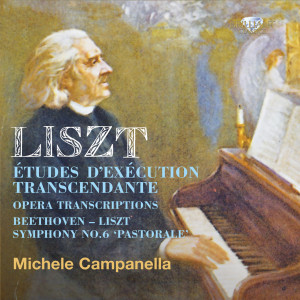
Richard Wagner, Giuseppe Verdi and 9 others
Liszt: Studies and Transcriptions
-

Richard Wagner and Giuseppe Verdi
Love & Death
-
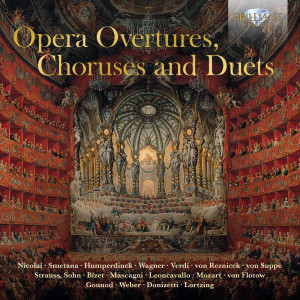
Richard Wagner, Giuseppe Verdi and 15 others
Opera Overtures, Choruses and Duets
-
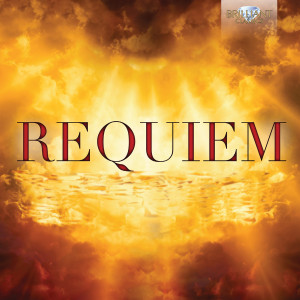
Giuseppe Verdi, Giacomo Puccini and 29 others
Requiem
-
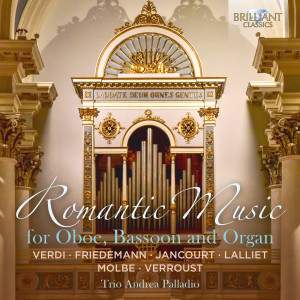
Giuseppe Verdi, Théodore Lalliet and 4 others
Romantic Music for Oboe, Bassoon and Organ
-
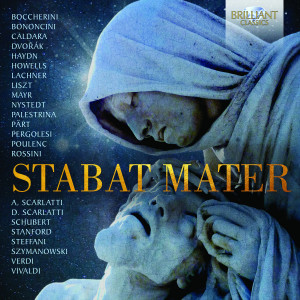
Giuseppe Verdi, Antonín Dvořák and 21 others
Stabat Mater
-
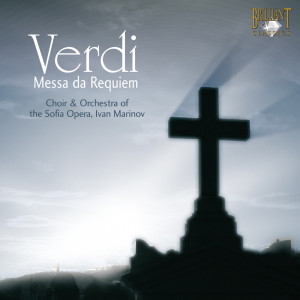
Giuseppe Verdi
Verdi: Messa da Requiem
-
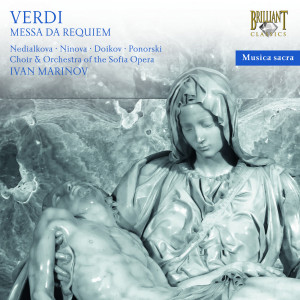
Giuseppe Verdi
Verdi: Requiem
